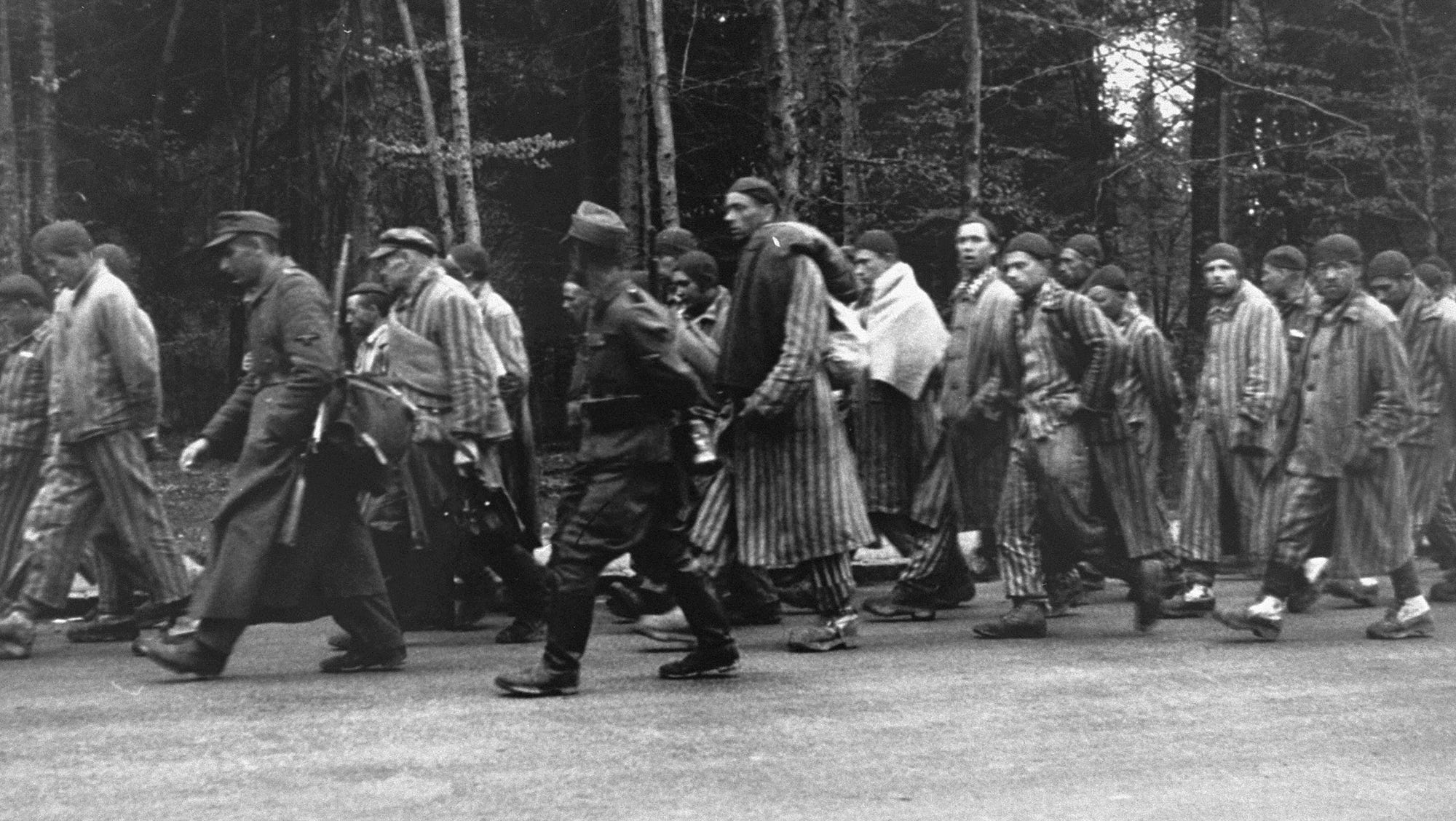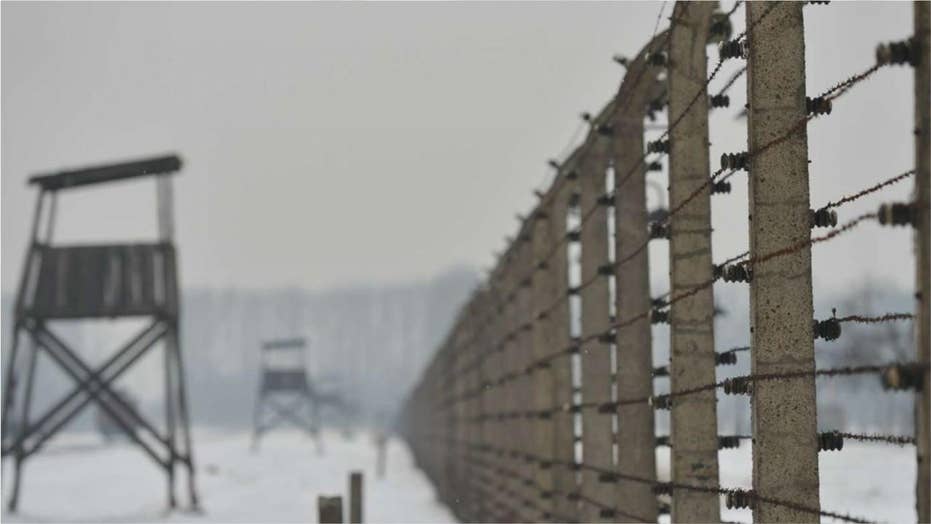Was Slavery Worse Than The Holocaust? A Deep Dive Into History's Darkest Chapters
Alright, let me just say this right off the bat—this ain't gonna be an easy read. But hey, we're diving into some heavy history here, so buckle up. The question on everyone's mind: was slavery worse than the Holocaust? Let's not shy away from it. This ain't about picking sides or pointing fingers; it's about understanding the complexities of human suffering. You ready? Good. Let's go.
Now, before we dive too deep, let's get one thing straight—this isn't a competition to see which tragedy was "worse." Both slavery and the Holocaust are stains on humanity that no amount of time can erase. But if we're gonna talk about it, we gotta do it right. So, we're gonna break it down piece by piece, looking at the history, the numbers, the impact, and everything in between.
Let's be real—this conversation is gonna stir some emotions. But that's okay. Sometimes, the hardest conversations are the ones we need to have the most. So grab a cup of coffee, find a comfy spot, and let's unpack this together. Trust me, it's gonna be worth it.
- Kid And His Mom Cctv Video The Untold Story Thats Capturing Everyones Attention
- Unveiling The Truth Behind Diva Flawless Sex Video Ndash The Real Story
Understanding the Roots of Slavery
Slavery ain't exactly a new concept. It's been around for thousands of years, popping up in different forms across different cultures. But when we talk about slavery in the context of this debate, we're mostly referring to the transatlantic slave trade. Yeah, that thing where millions of Africans were forcibly taken from their homes and shipped off to the Americas to work like machines. Brutal stuff.
The transatlantic slave trade lasted for centuries, and its effects are still felt today. It wasn't just about physical labor either. Slaves were dehumanized, treated like property, and stripped of their identities. Families were torn apart, cultures were erased, and generations were robbed of their potential. It was more than just a system of oppression—it was a way of life for far too long.
The Numbers Don't Lie
Let's talk numbers for a sec. Over 12 million Africans were forcibly taken from their homes during the transatlantic slave trade. Twelve million. That's more than the population of some small countries. And that's just the ones who survived the horrific journey across the Atlantic. Many didn't make it, dying in the cramped, disease-ridden ships. It was a death sentence for so many, and yet, it continued for centuries.
- Ali Vitali Jeremy Diamond Split The Inside Scoop Youve Been Waiting For
- Is Val Sweeting Married The Fascinating Journey Of A Curling Champion
Unpacking the Holocaust
Fast forward to the 20th century, and we're hit with another gut-wrenching chapter in history—the Holocaust. Adolf Hitler and his Nazi regime set out to "purify" the Aryan race by systematically exterminating millions of Jews, Romani people, disabled individuals, and others deemed "undesirable." It was a genocide on a scale never seen before, and its scars are still fresh for so many.
The Holocaust wasn't just about killing people—it was about dehumanizing them first. Concentration camps, gas chambers, medical experiments—it was a machine of death designed to strip away humanity. And it worked. Six million Jews alone were murdered during the Holocaust, along with millions of others. It was a dark, dark time in human history.
The Mechanics of Genocide
What made the Holocaust so unique was its sheer scale and efficiency. The Nazis used advanced technology and industrial methods to carry out their horrific plans. It wasn't just about random acts of violence—it was a well-oiled machine of death. From the meticulous record-keeping to the systematic rounding up of victims, the Holocaust was a chilling example of what happens when hate and technology collide.
Comparing the Two: A Difficult Task
Now, here's where things get tricky. How do you compare two atrocities that are so fundamentally different? Slavery was a system of oppression that lasted for centuries, while the Holocaust was a concentrated burst of violence that lasted for years. They're apples and oranges, but both are equally devastating.
Some argue that slavery was worse because of its longevity and the lasting impact it had on entire communities. Others say the Holocaust was worse because of its sheer brutality and efficiency. And then there are those who say it's impossible to compare the two because they're so different. Which side do you fall on?
The Long-Term Effects
Let's talk about the aftermath. Slavery didn't just end with the abolition of the practice. Its effects are still felt today in the form of systemic racism, economic inequality, and social injustice. The descendants of slaves are still fighting for equality and recognition. It's a battle that's far from over.
The Holocaust, on the other hand, left behind a legacy of remembrance and vigilance. Memorials, museums, and educational programs have been set up to ensure that the atrocities of the past are never forgotten. But the pain is still raw for many survivors and their families. The scars run deep.
What the Experts Say
So, what do the historians and scholars have to say about all this? Well, it's a mixed bag. Some argue that slavery was worse because of its long-term effects on society. Others say the Holocaust was worse because of its sheer scale and efficiency. And then there are those who say it's impossible to compare the two because they're so different.
One thing they all agree on, though, is that both atrocities are a reminder of the darkest aspects of human nature. They show us what happens when hate and greed take over, and they serve as a warning for future generations.
Key Statistics
- 12 million Africans were forcibly taken during the transatlantic slave trade.
- 6 million Jews were murdered during the Holocaust.
- Millions of others were killed in both tragedies.
- The effects of slavery are still felt today in the form of systemic racism and inequality.
- The Holocaust led to a global movement of remembrance and vigilance.
The Emotional Impact
Let's not forget the emotional toll of these atrocities. Both slavery and the Holocaust left deep scars on the psyches of their victims and survivors. The trauma is passed down through generations, shaping the identities of entire communities. It's a heavy burden to carry, and it's one that will take generations to heal.
But here's the thing—both tragedies also led to incredible acts of resilience and resistance. From the Underground Railroad to the Warsaw Ghetto Uprising, there are countless stories of people fighting back against oppression and standing up for their rights. It's a testament to the strength of the human spirit.
Stories of Resilience
Let's take a moment to honor some of the incredible individuals who stood up against the odds. Harriet Tubman, a former slave who became a leading abolitionist, helped hundreds of slaves escape through the Underground Railroad. And then there's Anne Frank, whose diary became a symbol of hope and resistance during the Holocaust. These are just two examples of the countless individuals who refused to let hate win.
Where Do We Go From Here?
So, what do we do with all this information? How do we move forward in a way that honors the memories of those who suffered and ensures that it never happens again? It's not an easy question to answer, but it's one we need to ask ourselves.
Education is key. By learning about the past, we can better understand the present and shape the future. We need to have these difficult conversations, even when they make us uncomfortable. And most importantly, we need to stand up against hate and intolerance whenever and wherever we see it.
Taking Action
Here are a few things you can do to make a difference:
- Learn more about the history of slavery and the Holocaust.
- Support organizations working to combat racism and genocide.
- Engage in conversations about these topics with friends and family.
- Stand up against hate and intolerance in your community.
Conclusion
Alright, so we've covered a lot of ground here. We've talked about the history of slavery and the Holocaust, the numbers, the impact, and everything in between. And while we may never have a definitive answer to the question of which was worse, one thing is for sure—both were unspeakably tragic.
So, what's next? It's up to us to learn from the past and work towards a better future. We owe it to the millions who suffered and the generations who came after them. Let's honor their memories by standing up for justice and equality for all.
And hey, if you made it this far, good job. This wasn't an easy read, but it was an important one. Now go out there and make a difference. The world needs more people like you.
Table of Contents
- Was Slavery Worse Than the Holocaust? A Deep Dive into History's Darkest Chapters
- Understanding the Roots of Slavery
- The Numbers Don't Lie
- Unpacking the Holocaust
- The Mechanics of Genocide
- Comparing the Two: A Difficult Task
- The Long-Term Effects
- What the Experts Say
- Key Statistics
- The Emotional Impact
- Stories of Resilience
- Where Do We Go From Here?
- Taking Action
- Conclusion
- Exploring The World Of Shemale Joi A Comprehensive Guide
- Unveiling The Truth Behind Buscar Kid And His Mom Cctv A Closer Look

German teens and the Holocaust Column

On Holocaust Remembrance Day, honor 6 million murdered Jews by showing

Margaret Garner, a Runaway Slave Who Killed Her Own Daughter The New